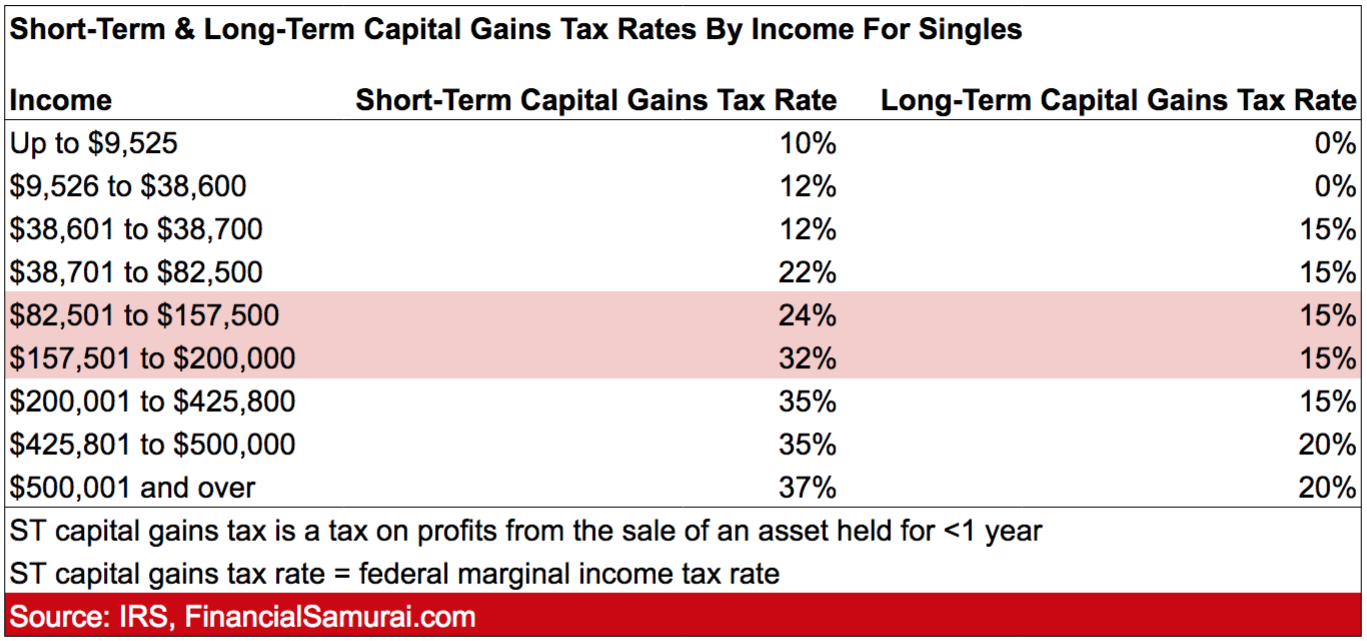Table Of Content

In that case, it makes sense to claim the principal residence exemption on the house that has the most significant gain, he added. Let's say you buy some stock for a low price and after a certain period of time the value of that stock has risen substantially. You decide you want to sell your stock and capitalize on the increase in value.

Fidelity Smart Money℠
Widowed taxpayers may be able to increase the exclusion amount from $250,000 to $500,000 when meeting all of the following conditions. Angela Rayner’s former husband made £134,000 after selling his former council house, previously unseen documents have revealed. Your federal taxes are paid to the IRS, while your California taxes are paid to the Franchise Tax ...
Married/Registered domestic partner (RDP)
Miranda is dedicated to advancing financial literacy and empowering individuals to achieve their financial and homeownership goals. She graduated from Wayne State University where she studied PR Writing, Film Production, and Film Editing. Her creative talents shine through her contributions to the popular video series "Home Lore" and "The Red Desk," which were nominated for the prestigious Shorty Awards. In her spare time, Miranda enjoys traveling, actively engages in the entrepreneurial community, and savors a perfectly brewed cup of coffee. Let’s say Mom and Dad bought the family home years ago for $100,000, and it’s worth $1 million when it’s left to you. When you sell, your purchase price (or “basis”) is not the $100,000 your folks paid, but instead the $1 million it’s worth on the last parent’s date of death.
How capital gains taxes on real estate work
It doesn't work for commercial real estate, rental properties or houses used as investment vehicles. This also means your secondary home or a vacation home that you rent out in the off-season would need to be converted into your main residence — among the other rules above — for the exemption to apply. Capital gains exclusions are attractive to many homeowners, so much so that they may try to maximize its use throughout their lifetime. Because gains on non-principal residences and rental properties do not have the same exclusions, people have sought ways to reduce their capital gains tax on the sale of their properties. One way to accomplish this is to convert a second home or rental property to a principal residence. Deferrals of capital gains tax are allowed for investment properties under the 1031 exchange if the proceeds from the sale are used to purchase a like-kind investment.
'It's chaos': Cottage owners rush to sell ahead of capital gains tax changes, realtors say - The Globe and Mail
'It's chaos': Cottage owners rush to sell ahead of capital gains tax changes, realtors say.
Posted: Wed, 24 Apr 2024 22:46:41 GMT [source]
Before the act, sellers had to roll the full value of a home sale into another home within two years to avoid paying capital gains tax. However, this is no longer the case, and the proceeds of the sale can be used in any way that the seller sees fit. If you are single, you will pay no capital gains tax on the first $250,000 of profit (excess over cost basis). Learn the details below, including the records you should keep while you own a home to help offset any taxes that could be due.
How We Make Money
If you choose to invest in a designated low-income community, you’ll get a step up in tax basis (your original cost) after the first five years. Homeowners pay property taxes to local governments to help cover the cost of community services. If you're a higher-income taxpayer, you may have to pay an additonal 3.8% net investment income tax. Just as you pay income tax and sales tax, gains from your home sale are subject to taxation. You’re feeling good and have cash in hand as you investigate some potential properties to buy. But then the music starts to slow, and you get nervous and wonder if you’ll be able to find a place.
Compare this with gains on the sale of personal or investment property held for one year or less, taxed at ordinary income rates up to 37%. But there are lots of exceptions to these general rules, with some major carveouts applying to residential real estate. Most commonly, real estate is categorized as investment or rental property or as a principal residence. An owner’s principal residence is the real estate used as the primary location in which they live.
The amount you end up with as a profit after selling your property is the capital gain that will be taxed. If your mom passes on the home to you, you'll automatically get a stepped-up basis equal to the market value of $300,000. If you sell the home for that amount then you don't have to pay capital gains taxes. If you later sell the home for $350,000 you only pay capital gains taxes on the $50,000 difference between the sale price and your stepped-up basis.
What Is the Capital Gains Tax Rate on a Primary Residence?
Of the many ways to lower your tax liability, tax-loss harvesting is among the more common - and the more complicated. You are being directed to ZacksTrade, a division of LBMZ Securities and licensed broker-dealer. The web link between the two companies is not a solicitation or offer to invest in a particular security or type of security. ZacksTrade does not endorse or adopt any particular investment strategy, any analyst opinion/rating/report or any approach to evaluating individual securities. Kemberley Washington is a tax journalist and provides consumer-friendly tax tips for individuals and businesses. She has been instrumental in tax product reviews and online tax calculators to help individuals make informed tax decisions.
Kelley has over two decades of experience advising on and covering education, law, finance, and tax as a corporate attorney and business journalist. Most of these costs will be listed in the closing statement prepared by the escrow, bank or other financial institution, (or attorney, in some states) when you sell your house. So, if you’re single and lived in your home for one year (half of the two-year residency requirement), you qualify for 50% of the $250,000 exclusion.
When you realize a capital gain, the proceeds are considered taxable income. If you don't satisfy the holding period requirement and sell the stock for less than the purchase price, your loss is a capital loss but you still may have ordinary income. To correctly arrive at your net capital gain or loss, capital gains and losses are classified as long-term or short-term. Generally, if you hold the asset for more than one year before you dispose of it, your capital gain or loss is long-term.
Over the 10-year ownership period, you've claimed a total of $90,900 in depreciation expense. If you sell the property now for net proceeds of $350,000, you'll owe long-term capital gains tax on your $100,000 net profit plus depreciation recapture on $90,900, which is taxed at your marginal tax rate. This means that if you sell your home for a gain of less than $250,000 (or $500,000 if married, filing jointly), you will not be obligated to pay capital gains tax on that amount. Tax-loss harvesting is a strategy that allows investors to avoid paying capital gains taxes. It uses the money that you lose on an investment to offset the capital gains that you earned on the sale of profitable investments. This means that you can write off those losses when you sell the depreciated asset, which cancels out some or all of your capital gains on appreciated assets.
The longer one holds a QOF investment, the more tax incentives there are. The 1031 exchange rules are very complicated and tricky, with many requirements to meet. As a result, make sure to talk to your tax adviser if you're contemplating a like-kind swap.
From major remodels to significant repairs, these improvements can be subtracted from the sale price to lower your capital gains. To calculate and report sales that resulted in capital gains or losses, start with IRS Form 8949. Rather than reinvest dividends in the investment that paid them, rebalance by putting that money into your underperforming investments.
Fortunately, the Taxpayer Relief Act of 1997 provides some relief to homeowners who meet certain IRS criteria. For single tax filers, up to $250,000 of the capital gains can be excluded, and for married tax filers filing jointly, up to $500,000 of the capital gains can be excluded. For gains exceeding these thresholds, capital gains rates are applied.

No comments:
Post a Comment